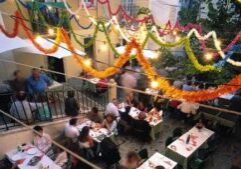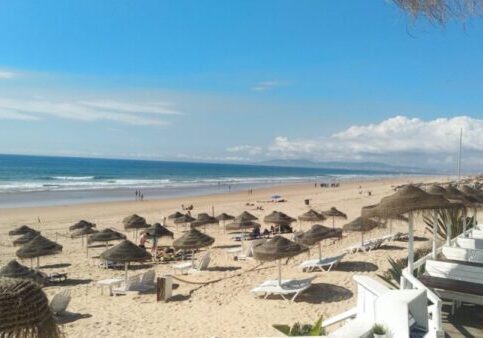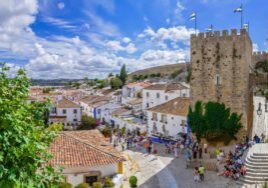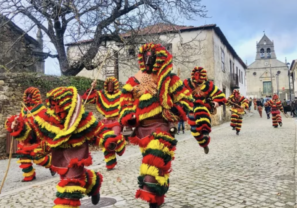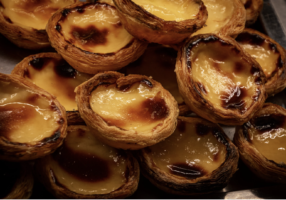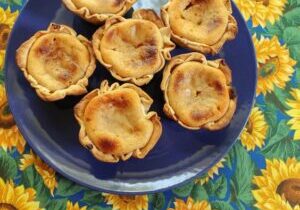Breakfast in Portugal: my 7 must-haves
Food in Portugal, I know you love it! I often tell you about the great food in Portugal, but not so much about breakfast. And yet … It’s a must in Portugal!!!
What’s for breakfast in Portugal? What are the breakfast traditions in Portugal? That’s the subject of today’s article. It’s sure to be a mouth-watering read.

1: Three particularities of breakfast in Portugal
- Special feature 1: Breakfast in Portugal is often eaten away from home. Most often in a “padaria” (bakery), “pastelaria” (pastry shop), “confeitaria” or “quiosque” (you know those pretty bottle-green kiosks you see everywhere in Portugal). So if you want to have breakfast in Portugal, you’re spoilt for choice! These bakeries, pastry shops, kiosks… are to be found on every street corner. My tip for finding a good pastelaria or padaria is to look at the front. That’s right! If it says “Fabrico próprio” (handmade) or “Pastelaria conventual” (pastelaria conventual), you’re usually assured of good products.
- Special feature 2: Breakfast at the counter: Another peculiarity – I said “peculiarity”, not necessarily “generality” (I’m making this clear so people don’t “bump into me” ;)) Breakfast in Portugal is often eaten standing up, at the bakery counter. In fact, all bakeries and patisseries in Portugal have counters, tables and chairs, unlike many traditional boulangeries-pâtisseries in France, where you can’t eat breakfast “on the spot”.
- Special feature 3: When it comes to breakfast in Portugal, sweet is out, and savoury is definitely in. Jams and spreads are quite rare, replaced by cheese and ham. So, yes, some Portuguese eat sweet in the morning, but the majority eat savoury. Incidentally, I don’t know if you know this, but France is one of the few countries to eat sweet food in the morning. The majority of countries in the world eat a savoury breakfast.
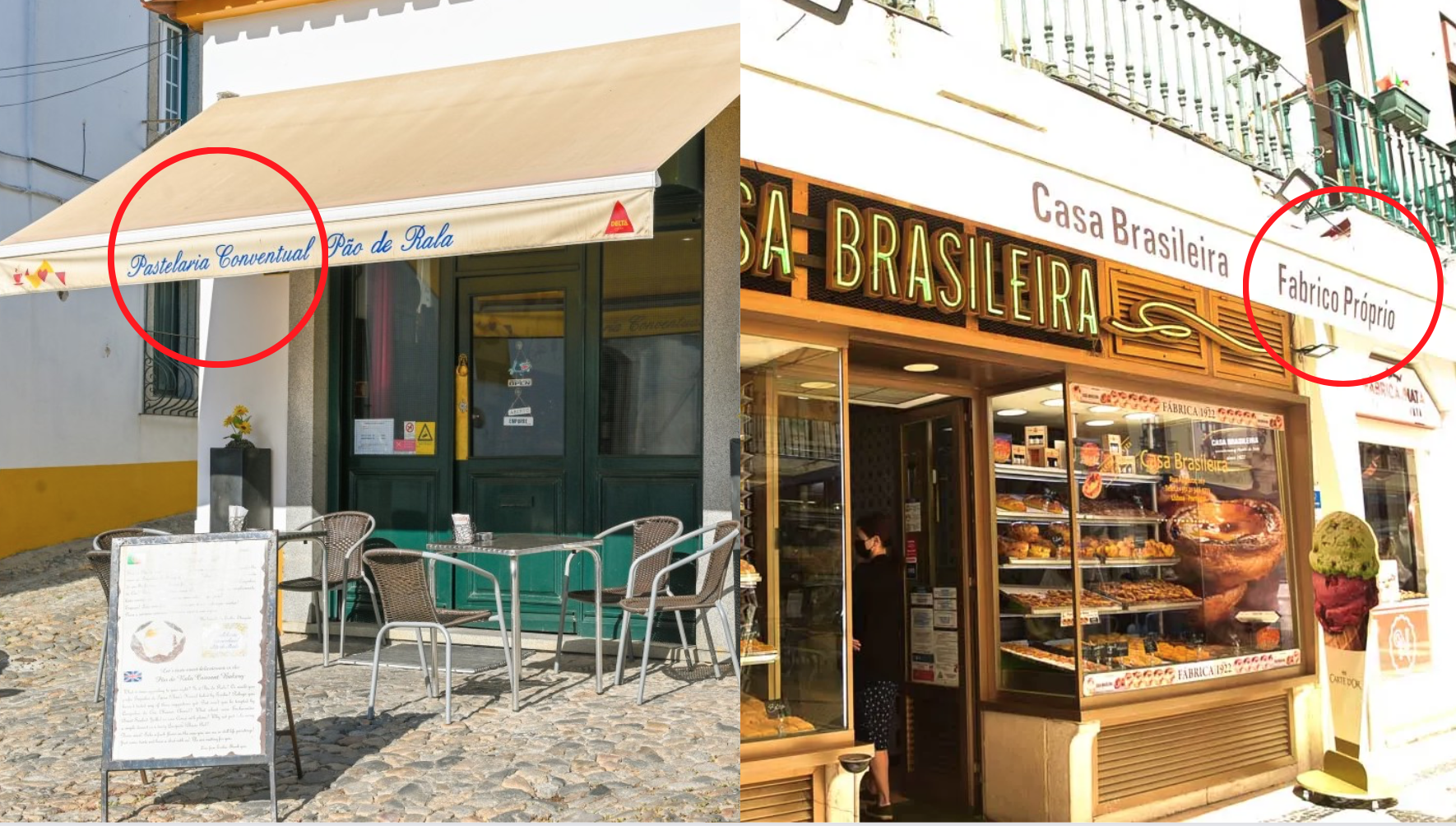
Conventual” and “Fabrico proprio” bakeries and patisseries
2:Savoury breakfast must-haves in Portugal
The most common breakfast in Portugal isa sandwich. The bread for the sandwich varies: loaf, brioche, croissant …, I’ll tell you about it right after, but the filling is generally always the same… I see you’re thinking of jam or spread? Well, no, not at all! If you’ve read my previous paragraph carefully, you’ll have the answer!
The filling consists of butter (manteiga), ham (fiambre) and cheese (queijo). If you want only cheese, you say “com queijo” (with cheese), only ham “com fiambre” (with ham) and if you want a mix of both: cheese and ham, you say “mista” (mix).
Let’s take a look at the most common savory breakfasts in Portugal…
- Pão (pronounced “peacock”) com fiambre or queijo: simply a single roll, either wheat or rye, buttered and topped with ham and cheese.
- Tosta Mista (pronounced “Touchta Michta”): you’ll find it everywhere in Portugal! Everywhere! And a word of advice … you can’t travel or live in Portugal without eating it at least once! It’s bread: either sandwich bread (pão de forno) or farmhouse bread (pão saloio), topped with ham and cheese. It is then crushed in a heated press. For presentation, it is often cut into halves or thirds and sometimes a little thyme is placed on top. The sandwich version of Tosta Mista is very similar to the famous Croque-Monsieur, but without the béchamel sauce.
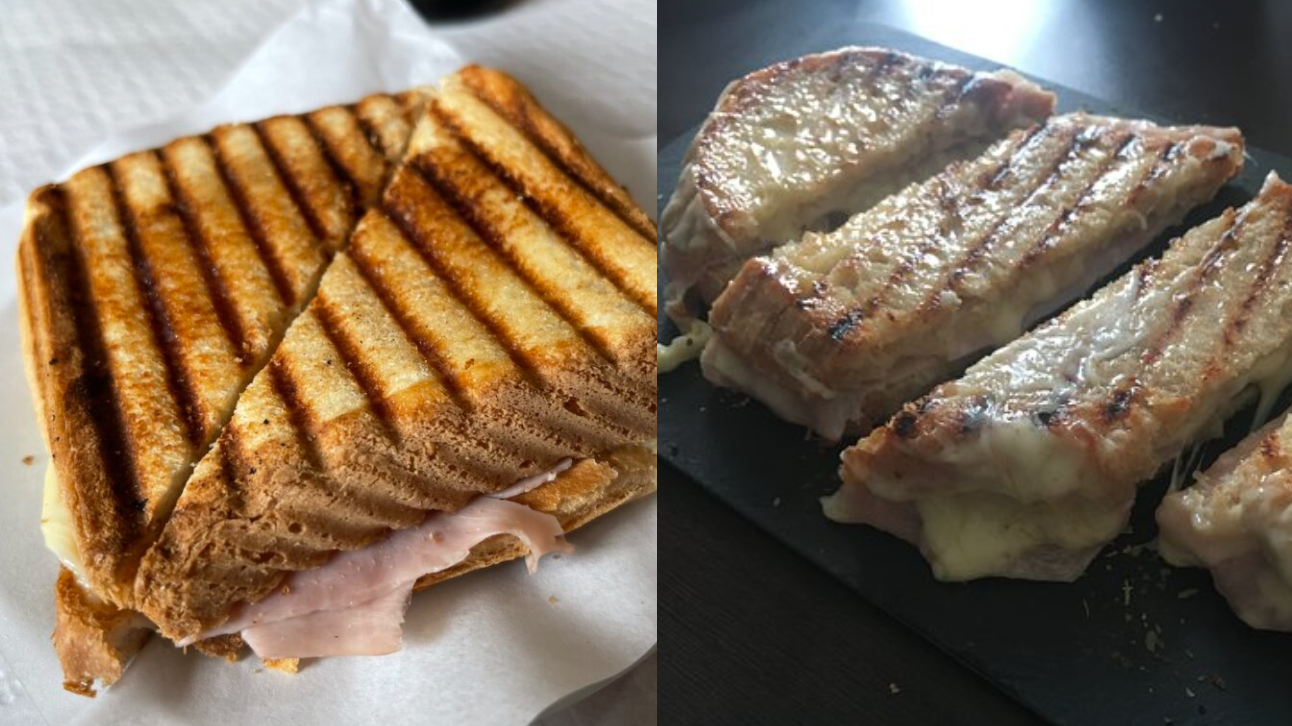
Tosta mista with sandwich bread on the left and Saloio bread on the right.
- Torrada (pronounced “Tourrada”): a breakfast classic in Portugal. It’s simply toasted sandwich bread generously spread with salted butter. The bread is unusual in that it’s not thin, as we’re used to seeing, but very thick, around 5cm thick. It’s very “fofo”, as they say in Portugal, meaning “very soft”.
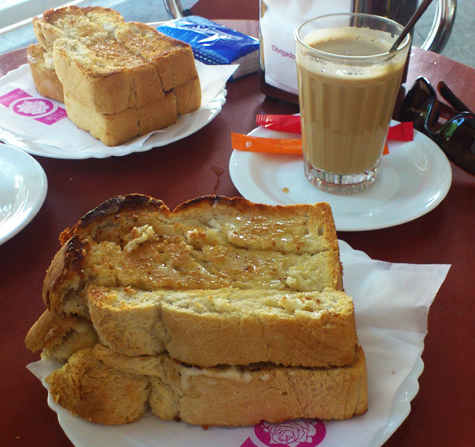
Torrada and Galão (café lait)
- Croissant brioche : I say “croissant”, so you’re thinking of the famous French flaky croissant… Well, the brioche croissant in Portugal is completely different! It’s a “hybrid being” 🙂 between a croissant and a pain au lait. It’s shaped like a croissant, but yellow and much denser (you won’t be hungry afterwards, believe me!). It’s often eaten with ham (fiambre) and cheese (queijo), like all Portuguese sandwiches 🙂 Like the Tosta mista, the croissant brioche can be pressed in the hot press if you ask for it: “croissant misto prensado”.
- Lanches: these are very soft brioche rolls filled with ham and cheese or chorizo, bacon and cheese. Light, isn’t it? 🙂
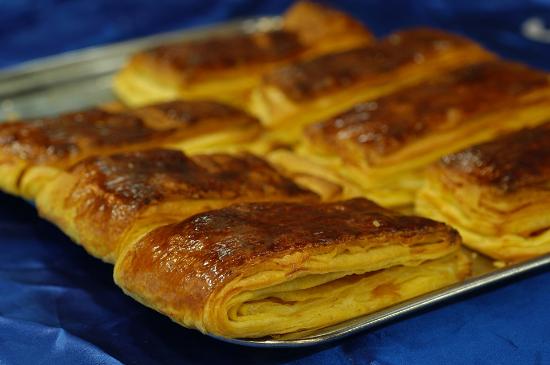
Lanches
3 :Sweet breakfast essentials in Portugal
Although the most common breakfast in Portugal is savory, there are many sweet alternatives 🙂 Here are just a few
- Pão de deus (pronounced “Paon de deuch”): this means “God’s bread”. The dough of this typical cake resembles a soft brioche and is covered with a mixture of egg yolk and grated coconut. You can eat it “plain” or choose a “pão de deus misto”, in which case it will be topped with ham (fiambre) and cheese (queijo). If you like sweet and salty, you’ll love it!
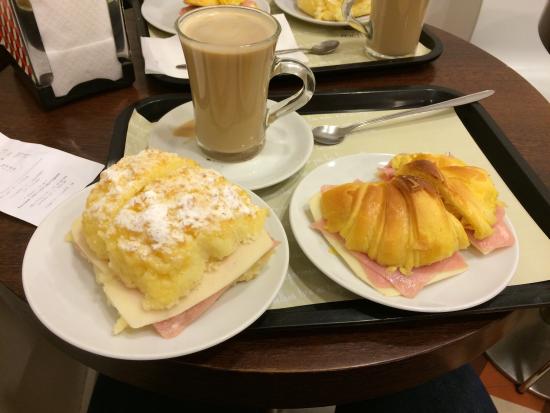
Pão de deus (left) and croissant brioche (right)
- Bolo de arroz, which means “rice cake”, is a classic Portuguese pastry. It’s a bit like a muffin, but with rice flour. The Portuguese, young and old, love it!
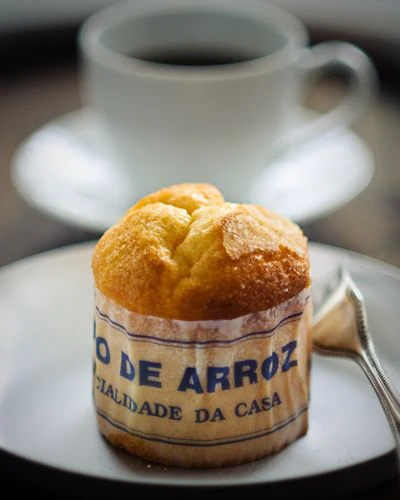
Bolo de arroz
- Pastel de nata (pronounced “Pachtel de nata”): this means “cream pastry”. You’ve probably heard of it, because it’s THE most famous pastry in Portugal, and I’ve often written about it in my articles. It’s often described as a “little flan”, but that’s not really what it is, and if you say that to a Portuguese person, they might take it the wrong way: )))) It’s a special puff pastry with cream. It can be eaten cold or warm, with or without cinnamon. A delicious treat! Very important tip: to find a good one, take a good look at the pastry – it should be like lace! I’ve put a photo below where you can see the difference between what I call a “good” pastel de nata and a “not so good” pastel de nata.
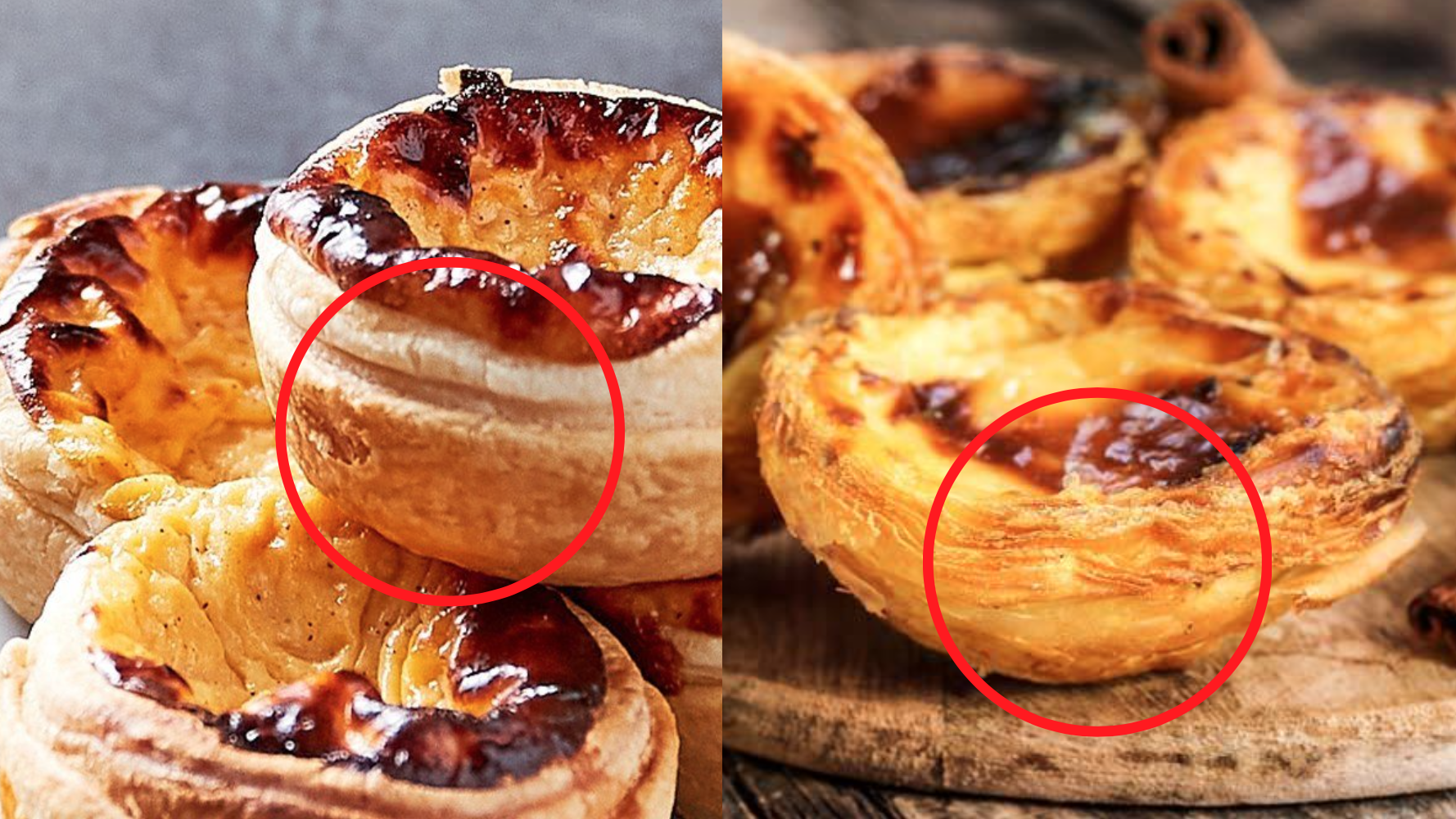
Pastel de nata should have a lace-like laminate, as in the photo on the right, and not be dense, as in the photo on the left.
4: Must-have breakfast drinks in Portugal
When it comes to breakfast drinks in Portugal, I’ve got my favorite! Well, to understand why it’s my “darling”, I’ll tell you a little more about me… I don’t drink coffee, so of course that limits my choice of beverages in the morning. But in Portugal, in the morning, for breakfast, I fall head over heels for their “Sumo de laranja natural”, which is simply squeezed orange juice. In Portugal, oranges are everywhere, and in almost every patisserie, bakery and kiosk you go to, you’ll find the squeezing machine with Portugal’s delicious, juicy, sweet oranges. It’s a real treat for me. And in terms of price, it’s nothing like the price of a glass of squeezed orange juice in France. It’s inexpensive, it doesn’t need water or ice, and it’s full of flavor. In short… you get the idea… Drink “sumo de laranja natural” when you’re in Portugal, that’s an order!!!! Make sure you specify “natural”, otherwise they might bring you a bottle of industrial orange juice… and that’s got nothing to do with it!
Another must-have breakfast drink in Portugal is, of course, coffee! In Portugal, it’s not really customary to drink tea or herbal tea, but coffee is the king of the Portuguese breakfast table. But it’s not just the classic small cup of coffee that exists, there are several very popular breakfast cafés in Portugal, the names of which I’m going to share with you, and please take a good look at the illustration photo, it might help 🙂 The main ones consumed are :
- galão (pronounced “o galaon”): 25% coffee, 75% milk, served in a tall glass
- meia de leite: 50% coffee and 50% milk, served in a cup
- garoto/pingo: 75% coffee and 25% milk, served in a cup
- abatanado – extended espresso in a large cup
- café or bica or espresso: the traditional espresso coffee (the term bica is mostly used in the Lisbon area). In Portugal, espresso coffee is rarely drunk at the same time as food; it is usually drunk at the end of breakfast, whereas coffee with milk is drunk at the same time as food.
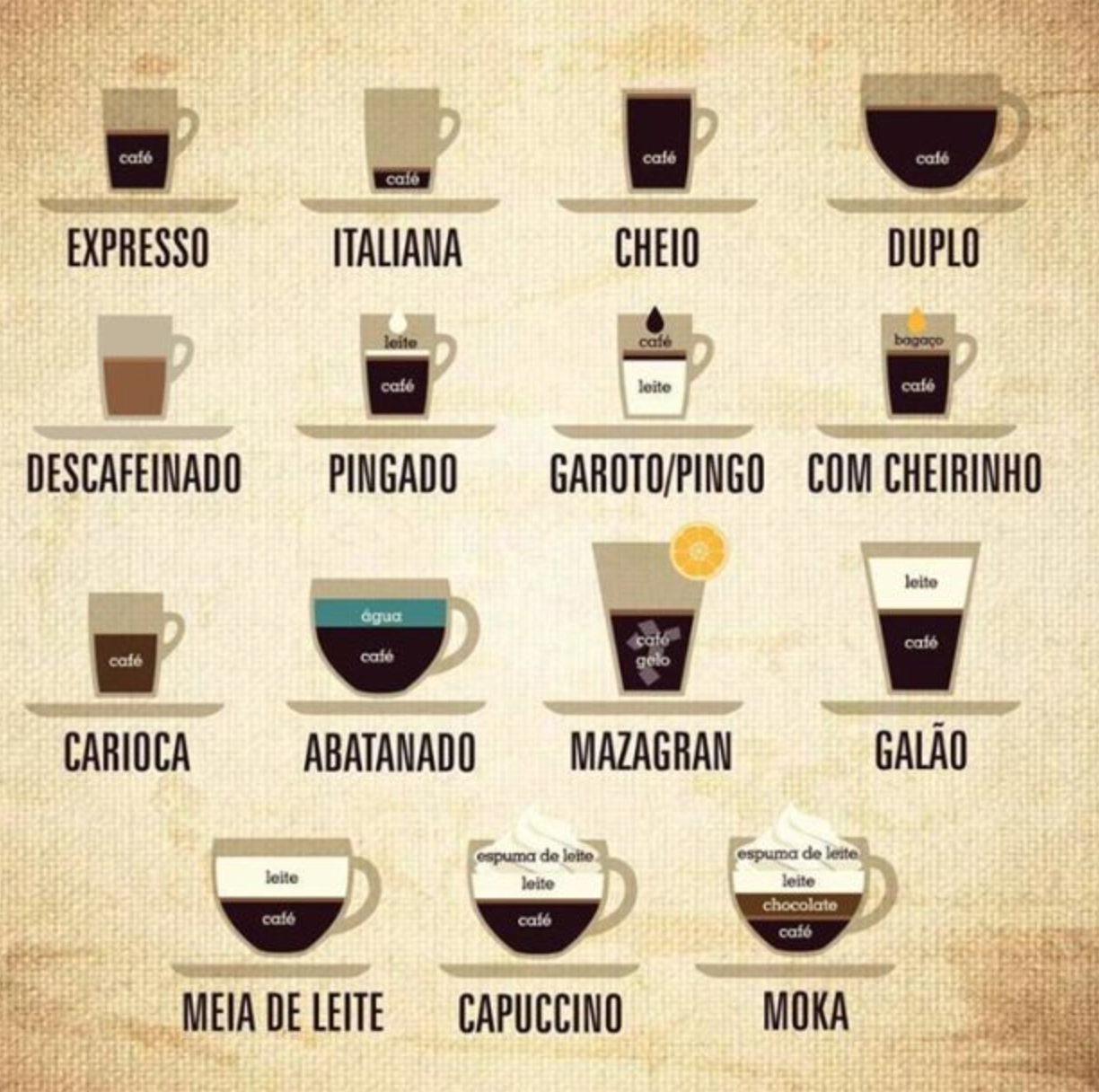
Cafés in Portugal (photo credit: coffeebi.com)
In conclusion
So, if you’re traveling or living in Portugal, I advise you to follow local traditions and have breakfast at your local bakery or patisserie.
Are you a great gourmet and want to know even more about Portuguese gastronomy? Discover my other articles:
- Breads in Portugal
- Desserts in Portugal
- Wines in Portugal
- Petiscos in Portugal
- Gastronomy in Portugal
- Dishes in Portugal
Join us on social networks!
- Facebook group “Amoureux du Portugal”,
- Vivre au Portugal” Facebook page
- Instagram ” Living in Portugal
Articles Populaires
dernières annonces

2 bedroom apartment with sea view, 10km from Lisbon and 2km from the beaches
Rua da Bica, 103Discover this magnificent 2 bedroom apartment with views of Arriba Fóssil and the sea, 2km…
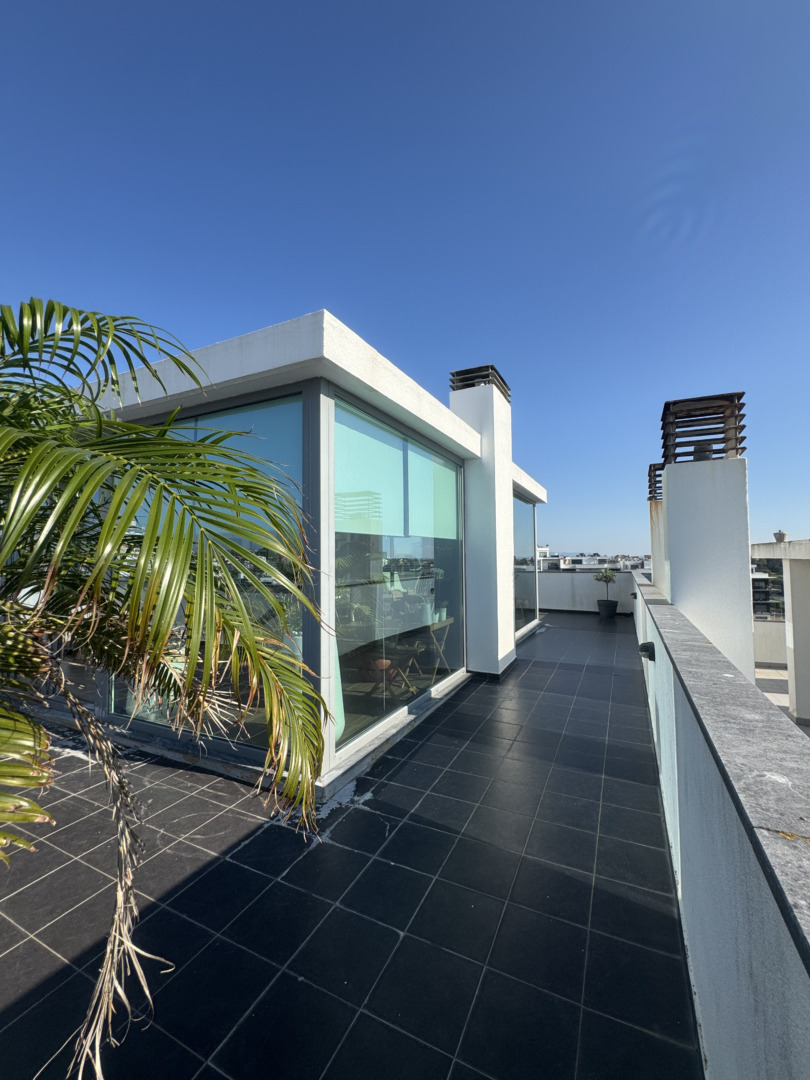
Duplex apartment with sea view 15 minutes from Lisbon
rua Santa Teresa 7Bedroom + duplex apartment with sea view and 15 minutes from Lisbon.
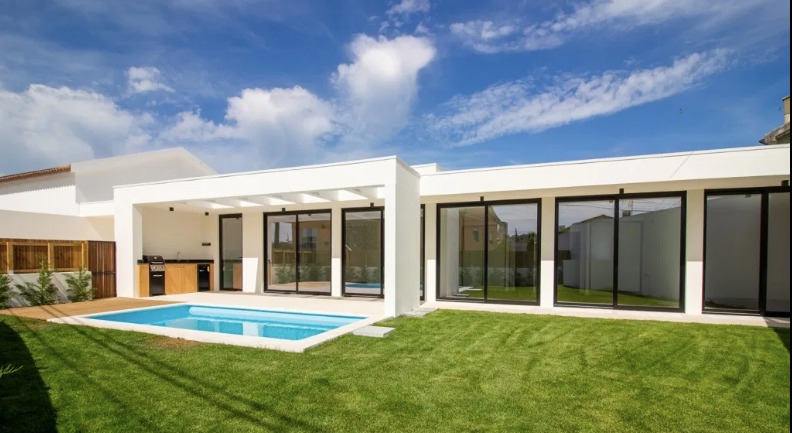
Single-storey house with swimming pool
Just a few meters from the magnificent bay of São Martinho do Porto, lies this…
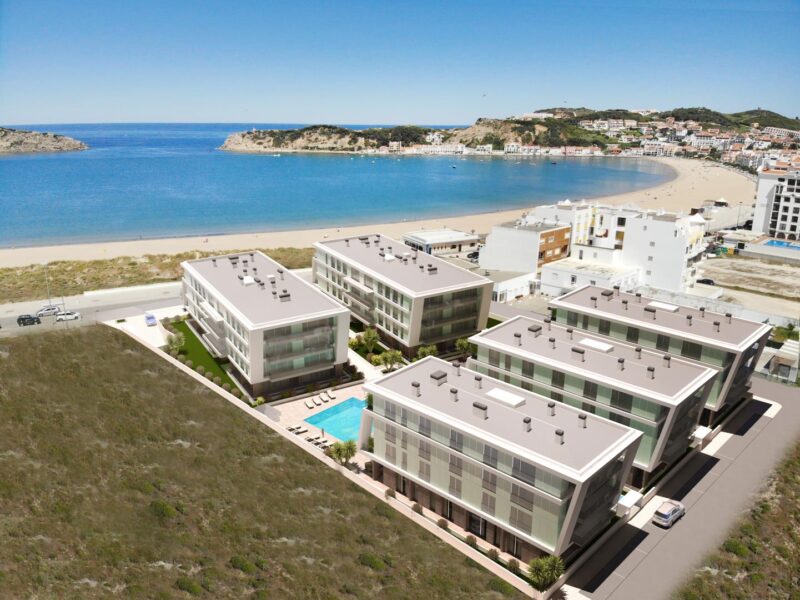
Condominium apartments facing the sea
São Martinho do PortoBeautiful apartments in São Martinho do Porto “Janela da Baía”! Located in the heart of…

Villa already finished and ready to move in: 4-suite bungalow on 750m2 plot in a quiet area of Azeitão
Rua de ParisHouse already finished and ready to move into! Close to shops and services, quick access…

Magnificent house with basement, indoor and outdoor pool in Verdizela/Aroeira
Verdizela/AroeiraNew turnkey project: magnificent single-storey villa, 498m2 in surface area, high-end finishes on a 1875m2…

Luxury apartment on the edge of a nature reserve
Your modern, spacious apartment between the beach and Lisbon’s capital. – Beach 5min – Golf…
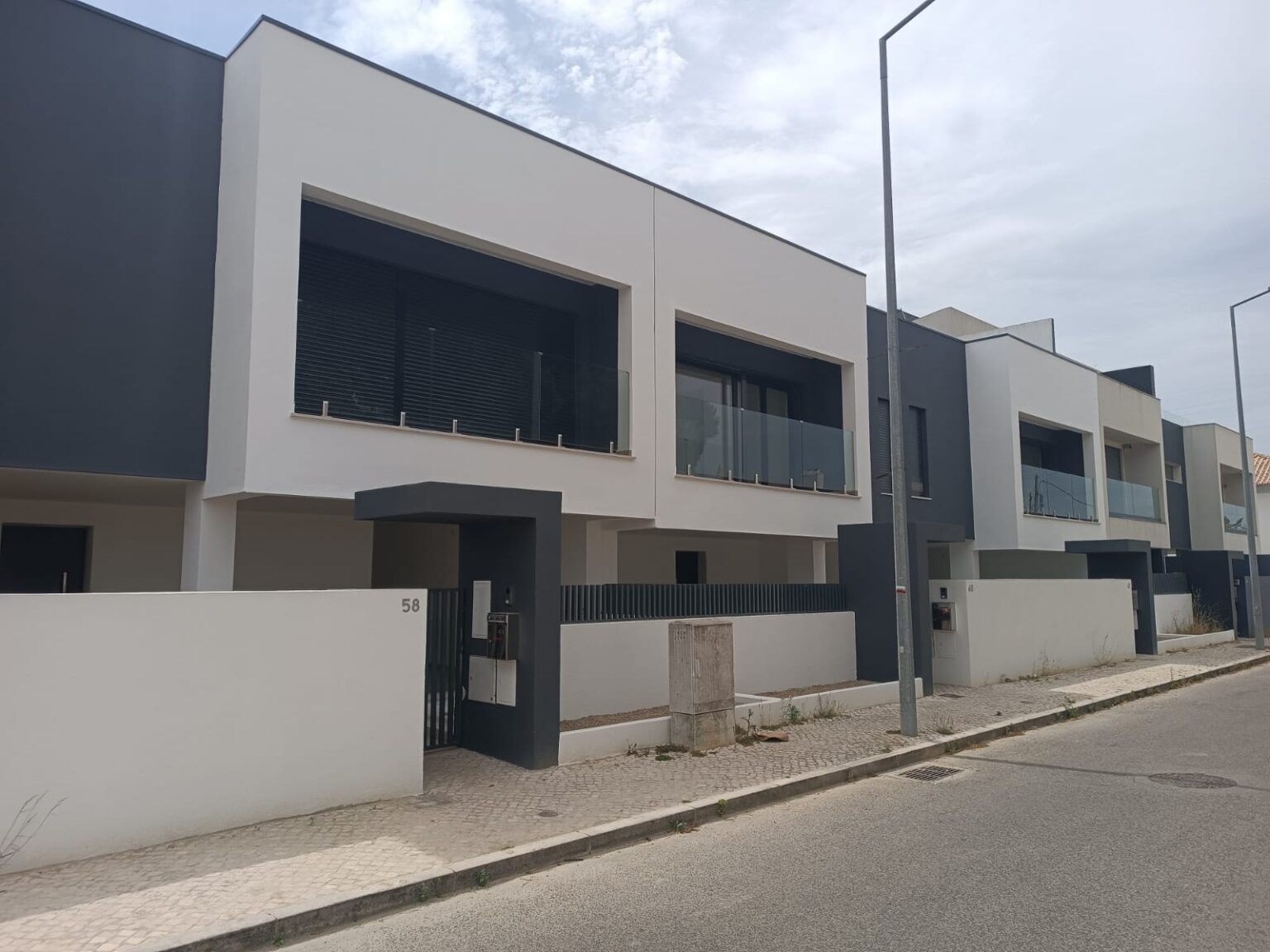
House T3 1 10 min from Lisbon and 5 min from the beaches
PêraREADY TO MOVE IN! New T3 1 ready-to-live-in house in a quiet, rural neighborhood with…

4 bedroom villa with pool and jacuzzi in Aroeira
rua são miguelModern, minimalist architect-designed house with exceptional details in a quiet location in Aroeira 2-storey house…
Inscrivez-vous à notre newsletter
Recevez chaque mois les derniers articles de notre blog "la vie au Portugal" et notre sélection de biens immobiliers à vendre.



